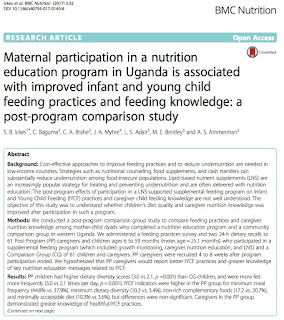While our goal is to be a good and faithful servant (see previous post), not necessarily to be recognized for success, as medical missionaries we also ascribe to the ethical injunction of primum non nocere. First, do no harm. Which is more complicated than it sounds when you are a bit of an outside-the-system whirlwind with your degrees, your laptops, and your bottles of hand sanitizer (to paraphrase one of the best movies of all time, Blood Diamond).
Whether we are living in a rural village trying to come alongside grandmothers caring for orphaned infants, or standing in front of a classroom of pastors, or pushing a mother into the operating theatre for a cesarean section, we believe that being a faithful servant means using all we have been given to the best of our ability in the service of our fellow humans. For the world's good and God's glory, as our Serge tag-line goes, means we have to pay attention to what is actually good for the world.
Over the last few months, a good number of our Serge teams have been attempting to so just that. While we were in Burundi, the Kibuye docs were preparing two poster presentations for a scientific conference in the capital, sharing their experience on improving conditions for neonatal survival and using recorded teaching to boost medical student performance. At Kijabe, our team has laboriously collected data from blood, urine, and spinal fluid cultures to determine which antibiotics will be most effective. In Chogoria, the team is working with local pharmacies on a research project to improve prescribing practices. Today I've been putting together a poster for the Kenya Paediatric Association's annual scientific meeting, evaluating three data sources public hospitals could use to measure neonatal outcomes (we aren't in Kansas, I mean Kijabe, anymore where consultants enter every patient into databases).
Whether we are living in a rural village trying to come alongside grandmothers caring for orphaned infants, or standing in front of a classroom of pastors, or pushing a mother into the operating theatre for a cesarean section, we believe that being a faithful servant means using all we have been given to the best of our ability in the service of our fellow humans. For the world's good and God's glory, as our Serge tag-line goes, means we have to pay attention to what is actually good for the world.
Over the last few months, a good number of our Serge teams have been attempting to so just that. While we were in Burundi, the Kibuye docs were preparing two poster presentations for a scientific conference in the capital, sharing their experience on improving conditions for neonatal survival and using recorded teaching to boost medical student performance. At Kijabe, our team has laboriously collected data from blood, urine, and spinal fluid cultures to determine which antibiotics will be most effective. In Chogoria, the team is working with local pharmacies on a research project to improve prescribing practices. Today I've been putting together a poster for the Kenya Paediatric Association's annual scientific meeting, evaluating three data sources public hospitals could use to measure neonatal outcomes (we aren't in Kansas, I mean Kijabe, anymore where consultants enter every patient into databases).
And while I was working on that, we got the email that an article was just published (link here) by one of our former missionaries who is still processing data from the nutrition program in Bundibugyo. It shows that our BBB program actually does improve the diet of children even AFTER they complete the program, as their caregivers learn to feed a greater variety of foods, and more often.
People of faith should be leading the way in a solid insistence that we give our very best for those we serve. Jesus gave his very life; let us follow in those steps.


No comments:
Post a Comment